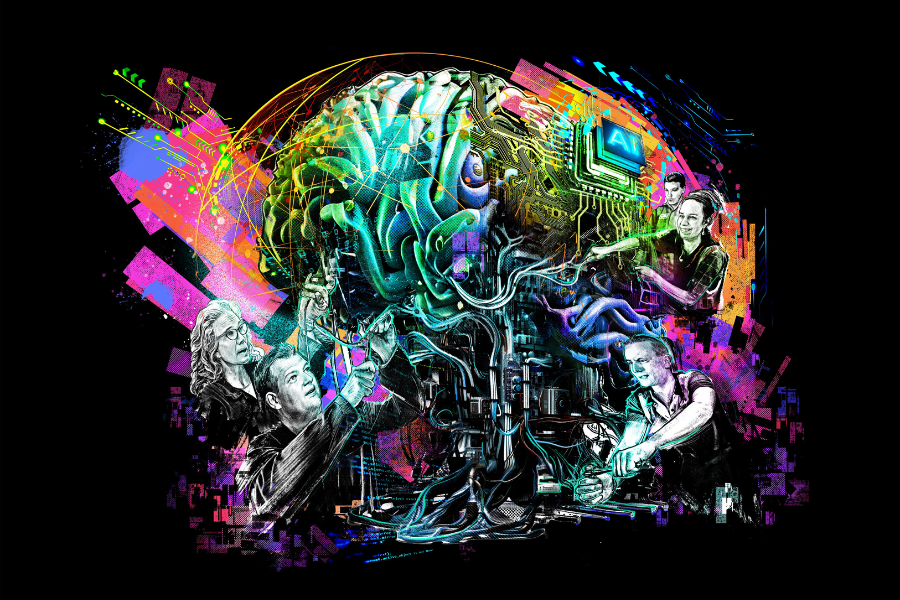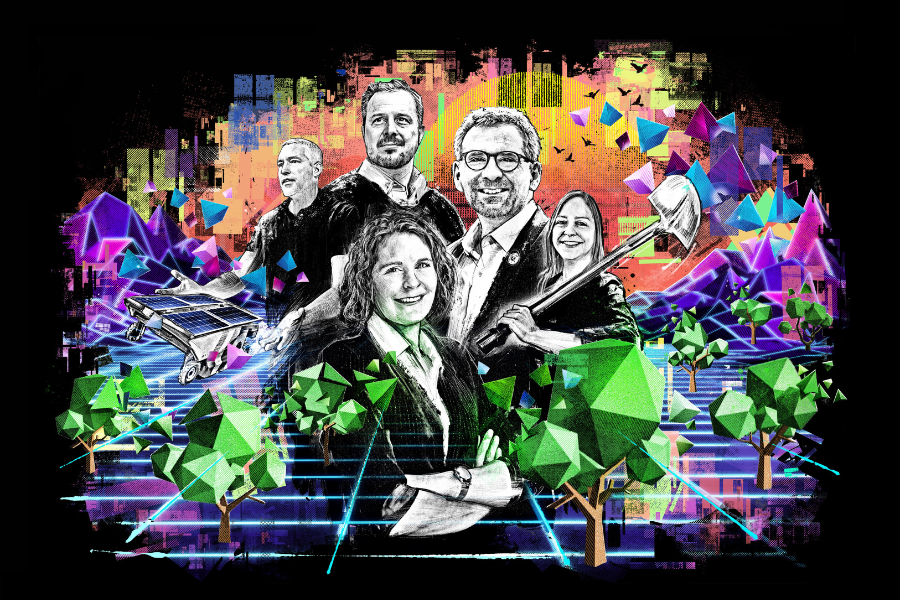Digital transformation is here to stay. We must therefore constantly foster dialogue to increase awareness for all that is and will become digital. Digitalisation brings not only opportunities, but also risks that need to be addressed and taken seriously. In my series “Dialogue Interviews” I discuss these topics with leaders in Switzerland, from our member organisations to digital shapers and the brightest minds in the fields of technology and innovation.
In this edition, I talked to Dr Urs Christoph Hofmeier, CEO of Schweizer Salinen AG.
Nicolas: You are the CEO of Schweizer Salinen AG, the only salt manufacturer in Switzerland. I find it very interesting that your company is also affected by digital transformation. Can you give me some concrete examples of digital projects currently under way at your organisation?
Urs: One of the most obvious digitalisation projects stems from client demand for an integrated order to cash process, including transfer of product data during delivery. But there is much more to come. With more sensors delivering data from decentralised and client salt storage, weather forecasts and AI analysis of historic salt use patterns, we are already thinking about predictive delivery. It means we can prepare before our clients even know they will have a shortage. This will allow us to increase the efficiency of our logistics quite dramatically.
Nicolas: One of the threats of digital transformation is that it lowers the bar for new competitors to enter the market, especially tech companies. Do you anticipate disruption for your company in the next 5-10 years and why?
Urs: I was told to concentrate on the possible disruption not on the disruptor. I see threats mainly as coming from logistics platforms which can leverage customer and distributor data to gain cost efficiency and customer experience advantages.
Nicolas: Which digital technologies do you think will be the most important for your company in the next 3-5 years? Will you be exploring data analytics, IoT, blockchain for supply chain, etc.?
Urs: I see two areas. One is the salt production with energy-intensive technology. Using IoT based sensors, we will be able to optimise our plants based on simulations with related digital twins. Process optimisation as well as predictive maintenance will be supported by AI using operational data tested against the digital twins. The other area concerns new possibilities in terms of client services. We will see much more salt being ordered directly online by the related equipment, e.g. the water softening installation in private homes. This development will allow us to grow with new services.
Nicolas: Last question, how do you see the impact of digital technologies on the Swiss manufacturing industry in general and how good are we in comparison to others, like our neighbouring countries?
Urs: The impact will be overwhelming, but Switzerland is well positioned. Beside the natural resource salt, Switzerland has access to a wealth of well trained and highly educated young people. In addition, our universities generate a large number of start-ups developing new technology, including in the growing area of sustainability.
—————————-—————————-—————————-
Urs: Nicolas, let me ask you a few questions. My biggest operational concern is how to mobilise valuable senior staff with vital knowledge but severe resistance to digital transformation. Is there any best practice?
Nicolas: Excellent question. This is a pattern we’re observing at many organisations and we often get asked how to deal with the need for digital skills combined with an attitude of severe resistance.
First of all, there is talent in the labour market around us. They seek organisations that are themselves “state-of-the-art”. To attract them, you need to offer modern and exciting conditions like flexibility, ownership, a flat hierarchy, etc. If the organisation itself can transform, it will be able to recruit experienced and talented people.
Second of all, no one should stop learning. As Einstein said, the day you stop learning, you start dying. It means that all experienced workers need to keep learning, every day – about digital skills, but also resilience, soft and cognitive skills. These will be more important in the next few years.
Urs: Current data and experience shows, that the competitive advantage of large platforms is unbeatable. Do you see a solution to the dilemma between open and free markets and the cry for regulation?
Nicolas: Indeed, in a global and liberal market and with strong scaling effect, the giant tech companies seem unbeatable. During previous important transformations, the majority of big companies were in trouble and new companies took their place. Is there going to be a fifth revolution where new companies take the lead over the GAFA and other giants? I think so. But nobody knows when. Will it be in 20 or 100 years? Now, in the short term, I’m not sure we need strong market regulation but I think some geographical tax adjustments should be undertaken as a next step (for example as in Europe currently).
Urs: A key technology for the digital transformation will be 5G. There is a significant risk of a broad emotional movement against 5G. How can we mobilise an even broader alliance to support the fast 5G coverage?
Nicolas: There is currently a mobilisation against 5G in Switzerland indeed. There is no study proving that 5G may impact health. But the opposite has not been proven as of today either. It’s important to stay rational, rely on facts and avoid becoming emotional. 5G is a huge opportunity for Switzerland, as we are one of only two countries in the world currently implementing 5G, beside South Korea. I hope we will be able to build an alliance in the next few months and bring back the discussion to a rational level, showing the advantages for our economy and society, while also discussing the impact on health, privacy and data protection of people.






